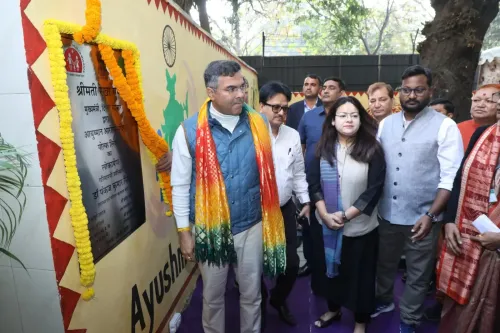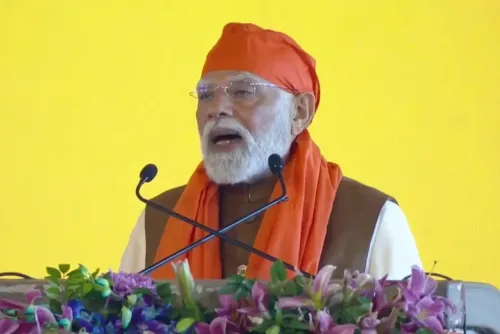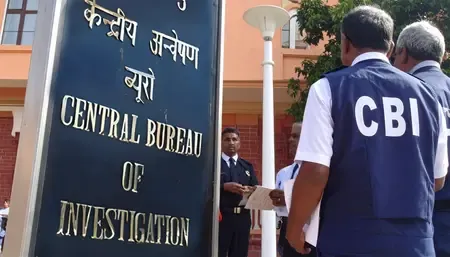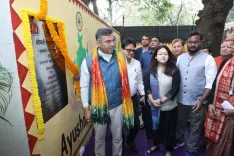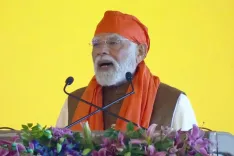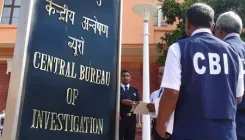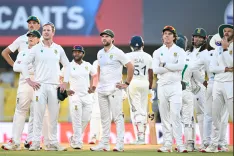How Can Staying Fit & Disciplined Help You Reach Space?
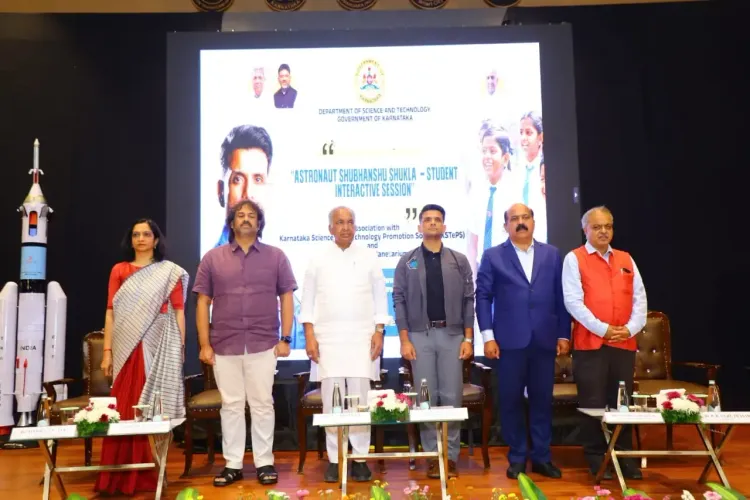
Synopsis
Key Takeaways
- Physical fitness and mental well-being are crucial for aspiring astronauts.
- Discipline plays a significant role in achieving career goals.
- Teamwork is essential in space missions.
- India's space program is advancing through initiatives like Gaganyaan.
- Accessibility to education and resources is vital for inspiring youth.
Bengaluru, Nov 25 (NationPress) IAF Group Captain and astronaut Shubhanshu Shukla shared invaluable insights with students in Bengaluru on Tuesday, emphasizing that achieving and maintaining robust physical and mental health, alongside a disciplined lifestyle, can pave the way for aspiring astronauts to represent their country like he does.
"Maintaining strong physical and mental health—and cultivating discipline in your daily life—can set you on the path to becoming an astronaut like me," Shukla remarked.
This enlightening session was organized by the Karnataka Department of Science and Technology at the Jawaharlal Nehru Planetarium, celebrating his significant contributions to the recent Axiom Space-4 Mission.
During the event, Shukla shared a brief video showcasing his rigorous training and experiences in space, offering students a rare opportunity to glimpse the life of an astronaut.
In discussing the future of India’s space endeavors, Shukla praised ISRO's Gaganyaan Mission, stating, "Gaganyaan is not merely a mission; it is India's affirmation that we can achieve world-class space capabilities in our unique way, all while being cost-effective without compromising on quality."
He engaged with enthusiastic students, reminding them that space exploration is a collaborative effort.
"I may seem like a hero to you today, but it took the efforts of thousands of engineers, doctors, and specialists to make my mission a reality. You can be one of them," he encouraged.
Shukla urged the students to aim high and work diligently toward their objectives.
"Dream big—but also embrace discipline," he advised the young audience.
"I trained for five years for a mission lasting just 20 days. Perseverance and patience are vital qualities."
He candidly discussed the challenges of space travel, including the struggle to adapt to microgravity and the intense G-forces astronauts experience upon returning to Earth.
"In emergencies, the spacecraft can exert 18–20 Gs—it feels like an elephant pressing down on your chest," Shukla explained.
Karnataka's Minister for Minor Irrigation and Science and Technology, N.S. Boseraju, commended Shukla for raising India's stature in the global scientific community.
"When you arrived at the International Space Station, you carried not just the national flag but also the aspirations of millions of Indians," he stated.
The Minister emphasized that every child, including those from rural areas, should feel inspired to aspire to be the next Kalpana Chawla, Sunita Williams, or Shubhanshu Shukla.
He also highlighted initiatives such as distributing 833 telescopes to rural schools, upcoming astronomy training for educators, an astronomy-centric academic calendar, and the launch of Nehru Stream Labs to facilitate hands-on learning.
Madhu Bangarappa, State Minister for School Education and Literacy, reiterated the government's commitment to fostering student talent through public education in Karnataka and enhancing digital access.
The event was attended by senior officials, including Principal Secretary N. Manjula, Planetarium Director B.R. Guruprasad, and students from various regions of Karnataka, who engaged in an inspiring Q&A session with Shukla.


